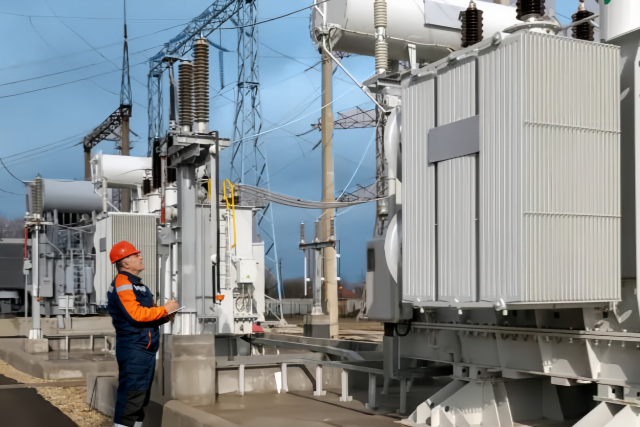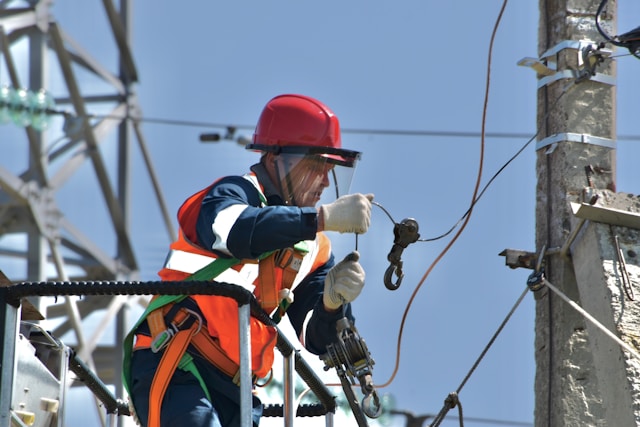An oil tan delta and resistivity tester is one of the most essential diagnostic instruments in the power industry, used to evaluate the condition and integrity of transformer insulating oil, bushings, and high-voltage insulation systems. By measuring dielectric dissipation factor (tan delta) and volume resistivity, this testing equipment helps engineers and maintenance teams detect early signs of contamination, degradation, or moisture that could lead to insulation failure. A well-executed tan delta and resistivity test allows power utilities and transformer operators to ensure equipment reliability, reduce outage risks, and extend asset lifespan.
Understanding the Role of Tan Delta and Resistivity Testing
Oil dielectric dissipation factor, often called tan delta, represents the inherent losses when insulating oil is subjected to an alternating electric field. A lower tan delta value indicates better insulation quality, while a higher reading signals contamination or oxidation. Resistivity testing, on the other hand, measures the oil’s ability to resist current flow under applied voltage—an equally critical parameter that reflects the purity and dryness of the dielectric fluid. Together, these measurements provide a complete picture of transformer oil health and help ensure that transformers, switchgear, and cable systems operate efficiently under high-voltage conditions.
Why Insulation Testing Quality Matters More Than Ever
Modern power systems face increasing stress from variable renewable energy sources, fluctuating grid loads, and rising voltage demands. Poor insulation performance can cause partial discharge, arcing, or catastrophic breakdown, costing substantial repair and downtime. Advanced oil tan delta and resistivity testers mitigate these risks by offering precise, repeatable results that support predictive maintenance. With automated temperature compensation, digital control, and integrated safety features, modern instruments outperform traditional analog testing methods.
Market Trends and Data on Insulation Testing Instruments
According to recent data from global energy equipment analytics, the transformer testing market has shown consistent annual growth driven by infrastructure refurbishment and grid modernization projects. Utilities are investing heavily in condition monitoring tools like automated oil dielectric loss testers, as preventive diagnostics lower maintenance costs by up to 30%. Demand for portable testers that combine high voltage insulation resistance, dielectric strength, and oil loss factor measurement has surged across Asia-Pacific, Europe, and North America. Battery energy storage systems, too, are intensifying the need for precision testing of fluid dielectric properties.
Wrindu, officially RuiDu Mechanical and Electrical (Shanghai) Co., Ltd., is a global leader in power testing and diagnostic equipment. Founded in 2014, we specialize in the independent design, development, and manufacturing of high-voltage testing solutions for transformers, circuit breakers, lightning arresters, batteries, cables, relays, and insulation systems. With ISO9001, IEC, and CE certifications, our products are trusted worldwide for their accuracy, safety, and reliability.
Core Technology and How It Improves Insulation Testing
The oil tan delta and resistivity tester relies on precise measurement of dielectric loss angle under controlled voltage and temperature. Advanced digital bridge circuits calculate dissipation factor with high accuracy, even in noisy environments. Modern units feature automatic oil heating, polarization current control, and software-driven data acquisition that records results in real time. By integrating thermal correction algorithms and multi-frequency sampling, engineers can analyze oil condition across various stress levels, identifying issues hidden at particular frequencies or temperatures.
Typical devices include built-in microprocessors with smart calibration, allowing consistent results independent of operator experience. Additionally, laboratory-grade testers now feature cloud-based reporting interfaces that connect to asset management platforms, letting maintenance teams analyze long-term insulation trends.
Comparing Top Oil Tan Delta and Resistivity Testers
| Model | Measurement Range | Key Advantages | Typical Use Case | Rating |
|---|---|---|---|---|
| RD-OA10 | 0.0001–10% tan delta | High-voltage accuracy, digital temperature compensation | Transformer oil labs, substation maintenance | 4.9/5 |
| MEG-Res700 | Up to 30 TΩ resistivity | Ultra-stable DC measurement, auto data logging | Research labs, power utilities | 4.8/5 |
| TDT-Pro Transformer Oil Analyzer | Multi-parameter oil analysis including dissipation factor and resistivity | Field testing, onsite diagnostics | 4.7/5 |
The comparison highlights how tan delta and resistivity testers have evolved to provide both laboratory precision and field portability. Advanced insulation testers integrate automatic electrode cleaning, thermal stability control, and multi-point testing to reduce human error while improving efficiency.
Real-World Use Cases and Measurable ROI
Power grid maintenance teams often use tan delta testers during transformer oil replacement cycles. In one case, a regional utility reduced transformer failures by 40% after implementing continuous monitoring of oil dielectric properties. Similarly, petrochemical plants using high-voltage motors integrate resistivity and tan delta testing to detect varnish buildup and moisture intrusion in their insulation oils. The average return on investment for adopting this diagnostic screening ranges between 15 and 25 months due to reduced unplanned outages and fewer insulation replacements.
How an Oil Tan Delta Tester Enhances Preventive Maintenance
Integrating oil tan delta measurement into regular maintenance programs allows operators to classify oil conditions into pass, caution, or failure categories. Continuous data tracking also supports transformer condition-based monitoring systems. In aging grids, periodic testing helps utilities schedule partial overhauls or targeted oil filtration, preventing full-scale replacement. Resistivity readings complement tan delta results, identifying contamination that may not yet influence dielectric loss but signals early degradation.
Competitor Comparison Matrix for Modern Test Instruments
| Feature | Analog Tester | Smart Digital Tester | Integrated Tan Delta & Resistivity System |
|---|---|---|---|
| Accuracy | Moderate | High | Very high |
| Automation | Manual | Semi-auto | Fully automatic |
| Data Storage | None | Local memory | Cloud-compatible |
| Operator Safety | Medium | Enhanced | Advanced protection |
| Recommended Use | Training, small labs | Field inspection | Industrial diagnostics |
Future Developments and Digital Evolution
As electrical testing evolves, expect to see AI-driven oil analysis systems capable of predicting insulation decay from continuous monitor data. Lab-grade testers will gain enhanced microprocessor platforms for faster computation, automatic calibration, and full digital control. True all-in-one testers that measure dielectric strength, breakdown voltage, tan delta, resistivity, and water content from a single sample will dominate future transformer maintenance markets.
Sustainability is another focus—modern insulation testers now use eco-friendly insulation oils and support recyclable test cell materials to minimize waste. In conjunction with evolving IEC and ASTM standards, these innovations ensure safety compliance while improving measurement repeatability.
Frequently Asked Questions
What does oil tan delta measure? It measures the dielectric loss of insulation oil under AC voltage, helping assess insulation aging, moisture, and contamination.
Why test resistivity in insulating oil? Resistivity indicates oil purity and resistance to leakage current; high resistivity means good insulation performance.
How often should oil tan delta and resistivity tests be done? Ideally every six months for critical transformers, and before major grid-loading changes to maintain system reliability.
Powering the Future of Reliable Electrical Testing
Oil tan delta and resistivity testers are transforming how the power industry ensures equipment insulation integrity. By combining digital precision, data intelligence, and robust automation, these instruments give utilities a dependable foundation for predictive maintenance and operational safety. Implementing systematic insulation testing not only enhances transformer life but also reinforces energy reliability across modern power networks.
For companies and technicians aiming to raise the standard of their electrical diagnostics, adopting a high-quality oil tan delta and resistivity tester is not just an investment—it’s a strategic move toward a safer, smarter electrical future.
FAQs
What Is a Tan Delta Test and Why Is It Vital for Electrical Insulation?
A tan delta test, or dissipation factor test, measures dielectric losses in transformer insulation by comparing resistive and capacitive current components. A low tan delta indicates healthy insulation, while a high value signals aging, moisture, or contamination, helping prevent unexpected failures in power systems. This test is vital because it detects subtle deterioration long before insulation breakdown occurs, enabling predictive maintenance and protecting grid reliability.
How Does an Oil Resistivity Tester Ensure Insulation Quality?
An oil resistivity tester measures how well transformer oil resists electrical leakage under a given voltage. High resistivity means the oil is clean and effectively insulating; low resistivity reveals moisture, particles, or oxidation that degrade performance. By running regular resistivity tests, engineers can spot contamination early, schedule oil processing or replacement, and keep the insulation system operating safely and efficiently.
Which Insulation Testing Equipment Offers the Best Accuracy Today?
Modern multivariable dielectric testers that simultaneously measure tan delta, capacitance, resistivity, and partial discharge tend to offer the best accuracy today. These instruments use precise low‑frequency AC sources, advanced algorithms, and temperature compensation to minimize measurement drift. For critical transformer and cable work, units compliant with IEC standards, with high resolution and built‑in diagnostics, are generally considered top‑tier and most reliable in the field.
What Are the Key Methods for Transformer Oil Testing?
Key transformer oil testing methods include tan delta, resistivity, breakdown voltage, moisture content, acidity, interfacial tension, and dissolved gas analysis. Each method targets different risks: tan delta and resistivity reveal dielectric health, while breakdown voltage and moisture testing show contamination levels. Together, these tests form a comprehensive oil‑condition profile, helping utilities know when to clean, replace, or just continue monitoring the oil.
How Do Tan Delta and Resistivity Help Diagnose Transformer Health?
Tan delta and resistivity together show both dielectric loss and leakage behavior in transformer insulation. Rising tan delta usually indicates aging, moisture, or contamination in solid insulation, while falling resistivity points to dirty or wet oil. By tracking trends in both parameters over time, operators can diagnose incipient faults, estimate remaining life, and schedule interventions before catastrophic failure occurs.
What Are the Key Standards for Oil Tan Delta and Resistivity Testing?
Key standards for oil tan delta and resistivity testing include IEC 60247 and ASTM D924 for tan delta, and IEC 60247 for oil resistivity. These documents define test voltages, frequencies, temperature corrections, and acceptable limits for new and in‑service oil. Following these standards ensures traceable, repeatable results that utilities and manufacturers can trust for acceptance, commissioning, and maintenance decisions.
Which Oil Tan Delta and Resistivity Testers Are Leading in 2026?
In 2026, the leading oil tan delta and resistivity testers are compact, multivariable units that combine dissipation factor, capacitance, and resistivity measurements in one device. Top‑tier models run on modern microprocessors, support automatic temperature compensation, and comply with IEC and ASTM standards. Many also offer Wi‑Fi or Ethernet connectivity for digital reports, making them popular choices for utilities, OEMs, and testing labs worldwide.
Where Can You Buy the Best Oil Tan Delta and Resistivity Tester?
You can buy high‑quality oil tan delta and resistivity testers through authorized distributors of leading test‑equipment brands, specialized electrical‑testing suppliers, and select manufacturers offering direct online sales. When purchasing, verify IEC/ASTM compliance, warranty terms, and after‑sales support. For mission‑critical substations and generation facilities, choosing a vendor with application expertise and responsive service maximizes long‑term value and ease of use.



